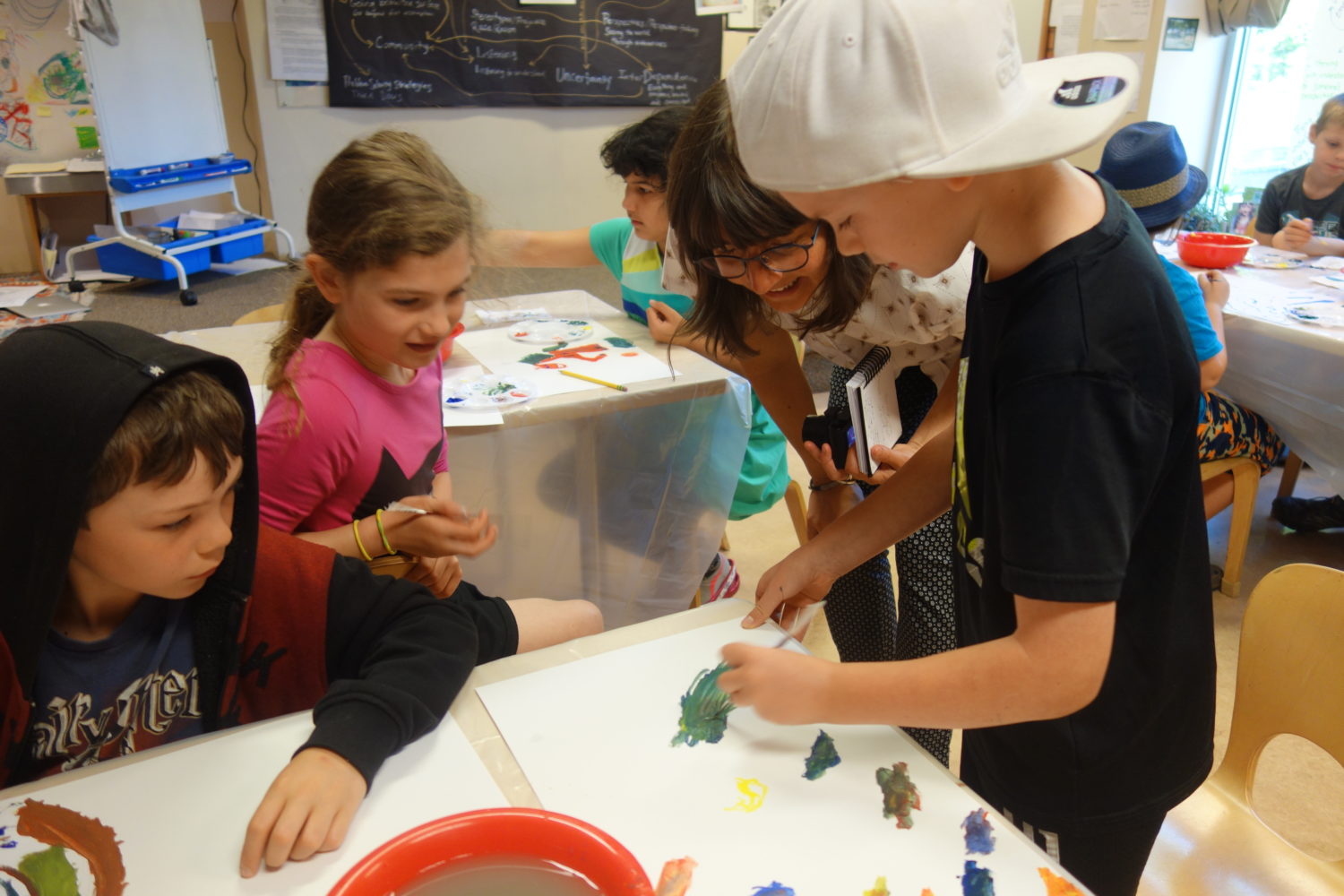Play, the arts, and education for democracy?

Next month, Opal School will host it’s 16th Summer Symposium. We determined the theme, Play, The Arts, and Education for Democracy, a year ago. Knowing that it was an election year, we figured that questions of democracy would find their way into classrooms. Little did we know how forceful that impulse would be.
As we inch closer to Symposium, I regularly find myself in conversations about the theme with Opal School staff and visiting presenters. While I think it’s not unusual for educators to find themselves at conferences focused on play, or the arts, or education for democracy, those conversations have led me to think about the power and value of naming all three together.
What might be the meaning of placing play, the arts, and education for democracy together? Perhaps it’s best to start with a thought experiment. What would we mean if we were to have our Summer Symposium theme be Education for Fascism? Not education for transcending, disrupting, or resisting fascism – because that could be called education for democracy – but education in the service of fascism?
It’s when I consider that question that the relationship between play and the arts and education for democracy become really apparent – because education for fascism wouldn’t be steeped in play and the arts, but their antitheses: bureaucracy and repetition. It would be about learning how to be compliant, how to follow rules, how to conform – because the nail that sticks up must be hammered down.
At a recent meeting, Opal School teachers shared a list of things that immediately come to mind when they think of education for democracy. What popped up?
- decision making
- getting messy in every way
- perspective taking
- values
- rights
- me vs. we
- changemaking
- freedom
- stances
- listening
- curiosity
- compromise
- citizen
- power
- privilege
- imagination
- goals
- voice
- diversity
- adversity
- agency
- third doors
- empathy
- agency
- apathy
- participation
- engagement
- uncovering complexity in every situation
- emotional awareness
- accepting approximations
I’ve been wondering: What are the essential contributions play and the arts offer in supporting dispositions that lie at the heart of democracy? How can we, with humility and chutzpah (as Parker Palmer writes), recognize that learning approaches rich with play and the arts are not just educational choices but ones which children have a right to – and upon which community well-being depends?
I’m looking forward to exploring those questions with my colleagues at Opal School, our guest presenters (including Tiziana Filippini, Joey Crume, Catie Dalton, Bridget DuRuz, Bill Fulbrecht & Rachel Schwartzman, Patricia Hunter McGrath and Christina Bianchi, Allie Pasquier, Andrea Pierotti, and Rob Van Nood), and a big group of educators from far and wide (at this point, we’ve got teachers from 14 states and 2 Canadian provinces.)
